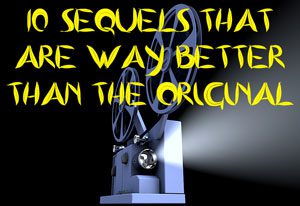“Everything Everywhere All at Once” needn’t be as overwhelming as its title suggests. The writing/directing duo of Dan Kwan and Daniel Scheinert invent a multiverse and thoroughly explain the rules to us. It’s inventive, yet not confusing.
Overstuffed
That’s a good start, but unfortunately the film is full of itself. It bombards us with silly humor based on its multiverse rules (notably, a “verse jump” requires the person to do something totally unpredictable, like eating lip balm), and several way-too-long action scenes. Although the core family is reasonably likable, the filmmakers love them much more than I did.
In short, “EEAAO” is too long. It has enough great moments that it could’ve been a solid, maybe even tear-jerking, 90-minute movie with a tighter screenplay or judicious edit. But it’s 2 hours and 19 minutes, and it feels longer than “The Batman” because its messages (although profoundly presented) are more basic than Kwan and Scheinert want to admit.
“Everything Everywhere All at Once” (2022)
Directors: Dan Kwan, Daniel Scheinert
Writers: Dan Kwan, Daniel Scheinert
Stars: Michelle Yeoh, Ke Huy Kwan, Stephanie Hsu
This is a dysfunctional family drama that just happens to transverse realities. The set dressers sell the set-up: Overburdened Evelyn (Michelle Yeoh), milquetoast Waymond (Ke Huy Kwan) and rebellious adult daughter Joy (Stephanie Hsu, Mei on “The Marvelous Mrs. Maisel”) live above the family laundromat. So does Evelyn’s dad Gong Gong (legendary character actor James Hong).
Their apartment can comfortably hold about a third of what they own. Every nook and cranny, and the sides of each stair step, contains stuff. Like the film will turn out to be, the place is overstuffed.
Dysfunctional, from one world to the next
However, “EEAAO” is not about tangible stuff, but the intangible. It’s basic, widely relatable intangible stuff. The couple is contemplating divorce (In an example of Kwan and Scheinert over-complicating things, they initially hide which spouse the desire to split comes from).
And Joy has a girlfriend, Becky (the underused Tallie Medel), something her grandfather’s generation isn’t comfortable with. (But what about Gong Gong himself? Maybe he shouldn’t be judged based on his generation. This is another example of “complexity” that isn’t truly there.)
The unspooling of the metaverse travel rules is fun off the bat. “EEAAO” deserves credit for making it understandable. Waymond first reveals the rules to Evelyn, but he’s not “her” Waymond, he’s the Alphaverse’s Waymond, temporarily using this Waymond’s body. Then she has to explain things to him.
Amid this, the comedy isn’t as funny as it needs to be. Jamie Lee Curtis plays an IRS agent, but she’s just a placeholder for humor. Same with Jenny Slate as a dog-owning cellphone-talker identified as Big Nose.

Diverse multiverse
“EEAAO” earns diversity cred for how the family members bounce between Chinese and English in the early going. This does lead to mild subtitled humor such as their nickname for Slate’s character. (I give a tip of the hat to the film for including subtitles rather than going the pretentious non-subtitled route of “West Side Story.”)
It’s perhaps neither good nor bad, but it’s worth noting that the story isn’t Chinese-American-centric. This adventure could feature any family.
I wish I liked “EEAAO” more. It has its moments, in a vacuum. Among the highlights are cutaways, set in a steamy neon ally, where Waymond pontificates on his relationship with Evelyn as (a version of) Evelyn listens. These scenes – along with other heady stuff you won’t see in any ole film – would’ve had so much more impact if they didn’t come after the film had exhausted its momentum.
The writers perhaps should’ve chosen between the couple’s problems and the mother-daughter rift as a focal point. The dual focus lessens both arcs, in my opinion. But no matter what arcs or scenes are defined as the excess, I bet even people who like this film find it to be too long.
Kwan and Scheinert try to give us “Everything Everywhere All at Once,” but less would’ve been so much more.

